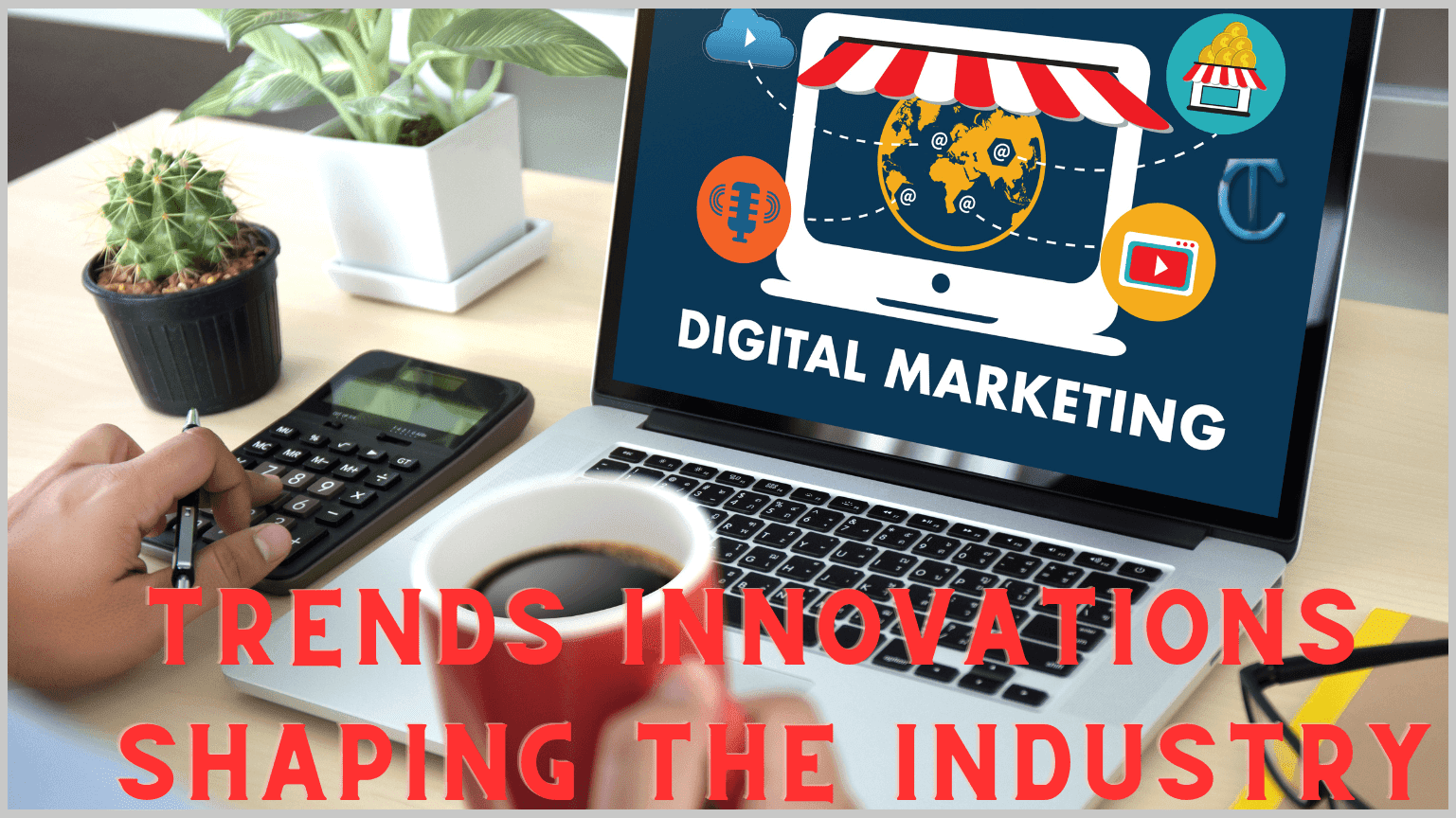Introduction
In today's fast-paced and ever-evolving digital world, marketers are constantly seeking innovative ways to reach consumers and optimize their digital strategies. With the emergence of new technologies and shifting consumer behaviors, keeping up with the latest trends is essential for businesses looking to remain competitive in the digital marketing space.
The future of digital marketing holds exciting possibilities that promise to revolutionize the industry. From artificial intelligence (AI) and personalized messaging to social media influencers and virtual reality (VR), this article will explore some of the most significant trends and innovations shaping the future of digital marketing.
1. Artificial Intelligence (AI) and Machine Learning
AI is revolutionizing digital marketing by enabling businesses to automate processes, personalize experiences, and make data-driven decisions. Machine learning algorithms analyze vast amounts of data to identify patterns and insights, helping businesses optimize ad campaigns, improve customer targeting, and deliver personalized content at scale. According to a Digital Marketing Agency in Phoenix, as AI continues to evolve, it will play an increasingly crucial role in enhancing customer experiences and driving marketing effectiveness.
2. Voice Search and Natural Language Processing (NLP)
The rise of voice assistants like Siri, Alexa, and Google Assistant is changing how people search for information. Voice search and NLP technology allow users to interact with devices using natural language queries.
Businesses must optimize their content for voice search by focusing on long-tail keywords, answering questions directly, and providing concise, conversational responses. As voice search usage continues to grow, businesses that adapt to this trend will have a competitive advantage in reaching their target audience.
3. Immersive Technologies: AR and VR
Augmented Reality (AR) and Virtual Reality (VR) are becoming increasingly prevalent in digital marketing. AR overlays digital information onto the real world, while VR creates immersive virtual experiences.
These technologies open up new possibilities for businesses to engage customers in unique and interactive ways. From virtual product demos to augmented reality advertisements, businesses can leverage AR and VR to create memorable and engaging experiences that drive brand awareness and customer loyalty.
4. Data Privacy and Personalization
With increased scrutiny around data privacy, businesses must prioritize consumer trust and transparency. Stricter regulations, such as the General Data Protection Regulation (GDPR) and the California Consumer Privacy Act (CCPA), require businesses to obtain explicit consent for data collection and usage.
To build trust, businesses should focus on transparent data practices, offer personalized experiences based on user preferences, and provide clear opt-out options. Balancing data privacy and personalization will be crucial for the future success.
5. Social Commerce and Influencer Marketing
Social media platforms continue to evolve into powerful e-commerce channels. Social commerce integrates online shopping with social media, allowing users to make purchases without leaving the platform. Additionally, influencer marketing continues to thrive as businesses collaborate with influencers to promote their products or services to highly engaged audiences.
The future of digital marketing will see an increased focus on leveraging social commerce and influencer marketing to drive conversions and enhance brand credibility.
6. Video Content Dominance
Video content is becoming the preferred medium for consuming information online. Platforms like YouTube, TikTok, and Instagram Reels have gained massive popularity, offering businesses new opportunities to engage their audience.
The future of digital marketing will see a shift towards more video content creation, including live streaming, stories, and short-form videos. To stand out, businesses must create compelling, shareable video content that resonates with their target audience.
7. Omnichannel Marketing and Customer Journey Integration
In the future, businesses will need to provide a seamless experience across multiple channels and devices. Omnichannel marketing ensures consistent messaging and user experience throughout the customer journey, whether it's through websites, mobile apps, social media, or offline touchpoints.
By integrating data and insights from different channels, businesses can deliver personalized and cohesive experiences, improving customer satisfaction and loyalty.
8. Smart Bidding and Automation in Advertising
Advertising platforms are increasingly incorporating machine learning and automation to optimize campaign performance. Smart bidding strategies use AI algorithms to analyze user behavior and adjust bids in real-time, maximizing conversions and return on ad spend.
Automated ad creation and optimization streamline the advertising process, allowing businesses to scale their campaigns more efficiently. Embracing smart bidding and automation will be essential to stay competitive in digital advertising.
Conclusion
The future of digital marketing holds immense potential for businesses willing to embrace technological advancements and adapt to changing consumer behavior. From AI-driven personalization and voice search optimization to immersive experiences and data privacy compliance, businesses must stay informed and agile to leverage these trends and innovations effectively.
By staying ahead of the curve, businesses can connect with their audience, drive meaningful engagement, and achieve sustainable growth in the dynamic digital marketing landscape.
